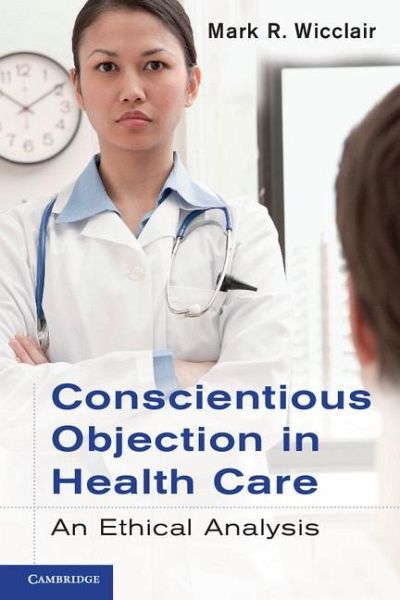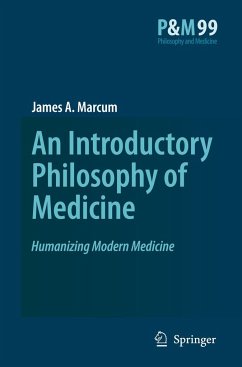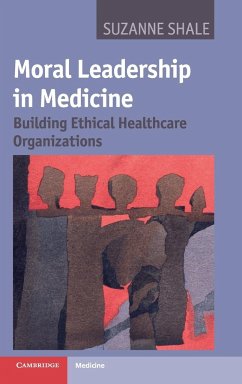
Conscientious Objection in Health Care
An Ethical Analysis
Versandkostenfrei!
Versandfertig in 1-2 Wochen
43,99 €
inkl. MwSt.
Weitere Ausgaben:

PAYBACK Punkte
22 °P sammeln!
Historically associated with military service, conscientious objection has become a significant phenomenon in health care. Mark Wicclair offers a comprehensive ethical analysis of conscientious objection in three representative health care professions: medicine, nursing and pharmacy. He critically examines two extreme positions: the 'incompatibility thesis', that it is contrary to the professional obligations of practitioners to refuse provision of any service within the scope of their professional competence; and 'conscience absolutism', that they should be exempted from performing any action...
Historically associated with military service, conscientious objection has become a significant phenomenon in health care. Mark Wicclair offers a comprehensive ethical analysis of conscientious objection in three representative health care professions: medicine, nursing and pharmacy. He critically examines two extreme positions: the 'incompatibility thesis', that it is contrary to the professional obligations of practitioners to refuse provision of any service within the scope of their professional competence; and 'conscience absolutism', that they should be exempted from performing any action contrary to their conscience. He argues for a compromise approach that accommodates conscience-based refusals within the limits of specified ethical constraints. He also explores conscientious objection by students in each of the three professions, discusses conscience protection legislation and conscience-based refusals by pharmacies and hospitals, and analyzes several cases. His book is avaluable resource for scholars, professionals, trainees, students, and anyone interested in this increasingly important aspect of health care. This book provides a comprehensive ethical analysis of conscientious objection in medicine, nursing and pharmacy, including discussions of conscience protection legislation and conscience-based refusals as well as several case studies. It is a valuable reference for scholars and students and anyone interested in this increasingly important aspect of health care.














